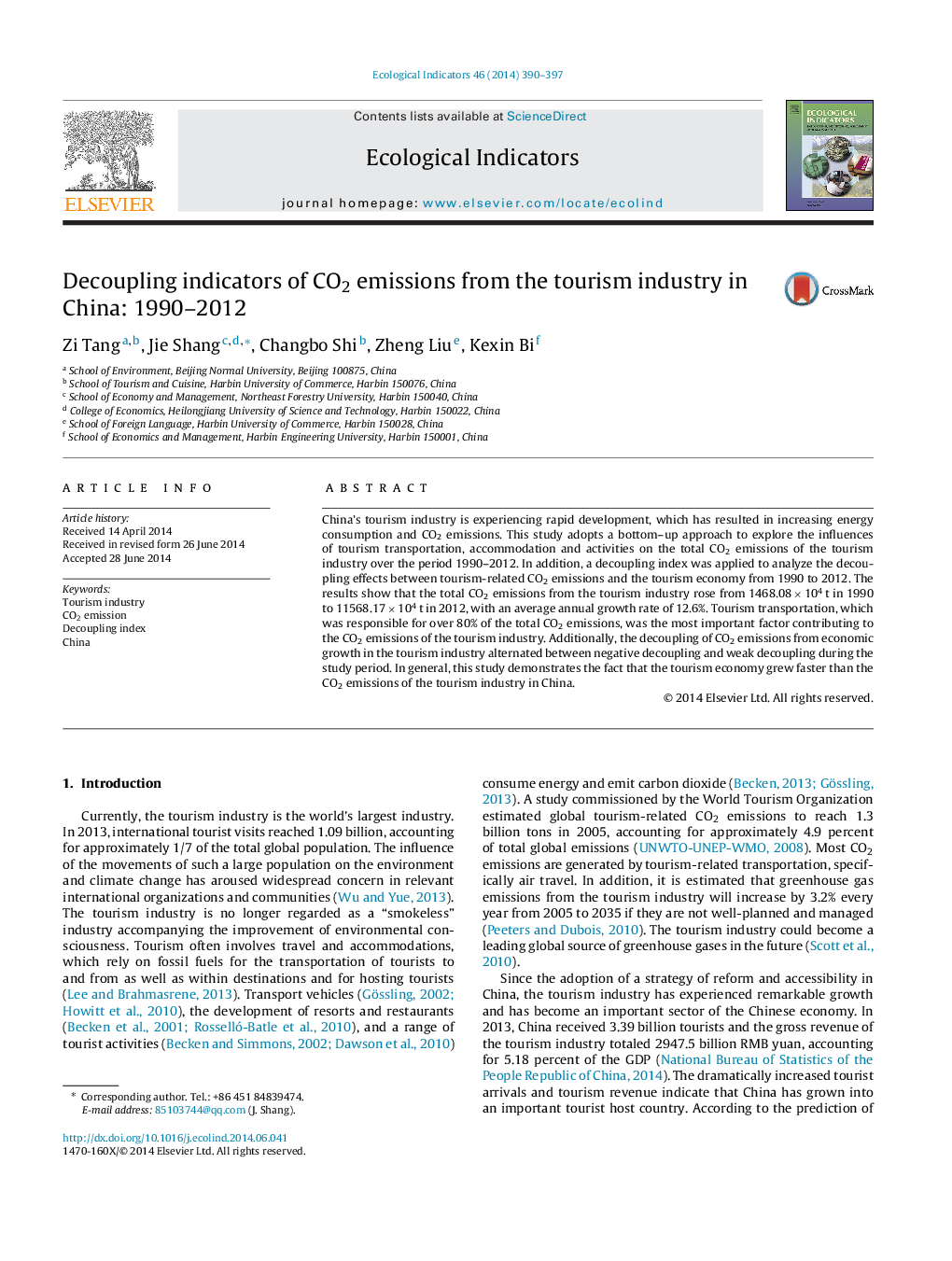| Article ID | Journal | Published Year | Pages | File Type |
|---|---|---|---|---|
| 6294906 | Ecological Indicators | 2014 | 8 Pages |
Abstract
China's tourism industry is experiencing rapid development, which has resulted in increasing energy consumption and CO2 emissions. This study adopts a bottom-up approach to explore the influences of tourism transportation, accommodation and activities on the total CO2 emissions of the tourism industry over the period 1990-2012. In addition, a decoupling index was applied to analyze the decoupling effects between tourism-related CO2 emissions and the tourism economy from 1990 to 2012. The results show that the total CO2 emissions from the tourism industry rose from 1468.08Â ÃÂ 104Â t in 1990 to 11568.17Â ÃÂ 104Â t in 2012, with an average annual growth rate of 12.6%. Tourism transportation, which was responsible for over 80% of the total CO2 emissions, was the most important factor contributing to the CO2 emissions of the tourism industry. Additionally, the decoupling of CO2 emissions from economic growth in the tourism industry alternated between negative decoupling and weak decoupling during the study period. In general, this study demonstrates the fact that the tourism economy grew faster than the CO2 emissions of the tourism industry in China.
Related Topics
Life Sciences
Agricultural and Biological Sciences
Ecology, Evolution, Behavior and Systematics
Authors
Zi Tang, Jie Shang, Changbo Shi, Zheng Liu, Kexin Bi,
